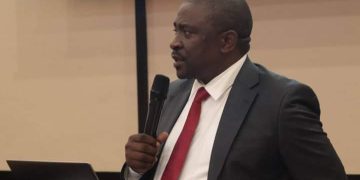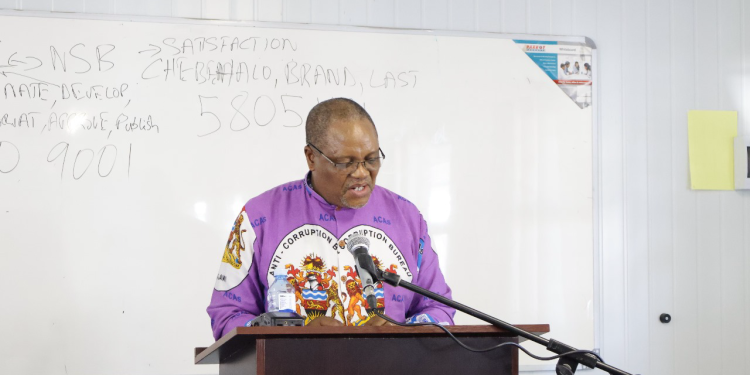The Public Service launched a Systems Integrity Committee (SIC) in line with Directorate on Corruption and Economic Offences (DCEO) mandate to fight Corruption.
It is mandated to work as an internal self-monitoring mechanism for ensuring that all structures of the Ministry perform their functions efficiently and effectively with integrity and free from corruption.
Speaking at the launch, Litelu Ramakhoro, commented on issues of corruption in the public service stating, “The most recent Auditor General’s report, released a few days ago, has exposed the dire state of the country’s accounts, where billions of Maluti are unaccounted for. In the same manner, the issue of recruitment and all that goes with it especially in the public sector, leaves just too much to be desired.”
He went on to point out that it is no surprise that in terms of the Corruption Perception Index (CPI), Lesotho has plummeted from its best position ever of 55th globally, with a 49% score in 2013 and 2014, consecutively, down to 99thposition in 2022, with a score of 37% only.
Ramakhoro said the body is to work as a self-monitoring structure to fight corruption, having committees in all ten districts.
“DCEO continues to establish the Students Integrity Associations (SIAs) with the key objective of inculcating anti-corruption values and principles in the students so as to develop them into citizens of integrity.
In fact, on a much broader scale, DCEO has engaged the National Curriculum Development Center (NCDC) to infuse anti-corruption education in the school curricular, right from the pre-school level to the tertiary/university level” Ramakhoro said.
Minister of Public Service, Mputi Steven Mputi, stated that he fully internalises the mandate of the Committee and re-iterates that the Committee shall be, “An internal self-monitoring mechanism for making sure that all structures of the Ministry of the Public Service perform their functions efficiently and effectively with integrity and free from corruption’.
He highlighted that his Ministry is a leading ministry in operationalizing SIC within ministerial operations, and he consider this is a crucial function to improve governance and delivery of public service, which is their mandate.
The minister stated that they have been sensitizations and rigorous workshops underwent through DCEO to adequately prepare the newly selected committee to take assignment with integrity and without fear or favour.
The Principal Secretary and chief accounting officer in the Public Service, Makhoabane Lelimo, stated that the Committee is composed of all departments in the ministry.
She continued that in their workshops, poor service delivery and misuse of public resources and privileges thus promoting corruption, officers’ misconduct and indiscipline, mismanagement of government houses, procurement irregularities and late payments and challenges raised by audit queries, are challenges likely to create conducive environment for corruption if not addressed properly.






